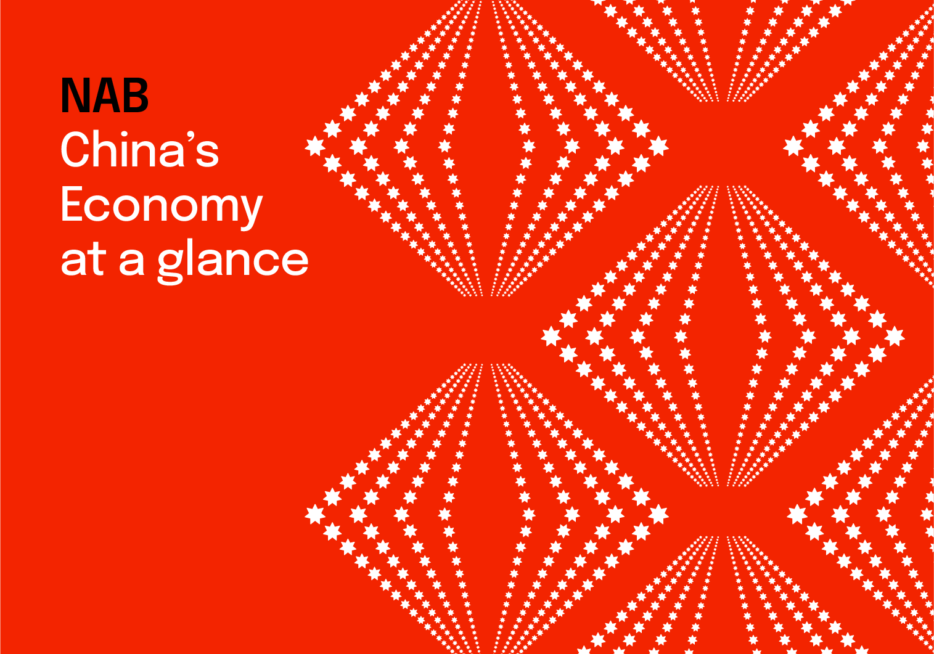May 4, 2023
NAB Quarterly Australian Commercial Property Survey Q1 2023
The NAB Commercial Property Index improved a little further in Q1 but economic uncertainty seems to be weighing on confidence.
The overall Index continues to be weighed down by negative sentiment in Retail and Office markets amid elevated economic uncertainty and slowing spending. A well below average 1 in 3 property developers plan to start new building works in the next 6 months, and more property professionals said funding conditions (both debt and equity) were harder in Q1.
Survey highlights
- The NAB Commercial Property Index improved a little further in Q1 2023 but still printed negative (-6 pts). Though the index was up from -9 pts in Q4’22, it was well down from the same period last year (+11 pts) and still trending below the long-term survey average (-1 pt).
- Sentiment was unchanged and highest in the CBD Hotels sector (+33 pts), with property professionals reporting positive capital and RevPAR growth during the quarter. The Industrial Property index fell to its lowest level in over 2 years (+32 pts), but remains well above the survey average (+9 pts). Office market sentiment is still very weak, but improved to -16 pts (-27 pts in Q4’22), with the Retail index also up a little but still deeply negative (-32 pts from -37 pts in Q4’22), amid elevated economic uncertainty and slowing spending.
- Economic uncertainty remains elevated. How quickly inflation moderates is a key unknown as domestic pressures – including wage and rents growth – continue to build. On the other hand, the full impact of the rapid tightening in monetary policy is yet to be seen, and there is a risk that activity could slow more sharply than expected. Against this backdrop, commercial property confidence levels for the next 12 months continued to print negative (-2 pts), with the 2-year measure unchanged at a well below average +12 pts.
- Confidence in the next 12 months is highest for CBD Hotels (+33 pts) and Industrial property (+32 pts), though down from +42 pts and +46 pts in Q4’22 respectively. Confidence remains relatively weak for Office property (-11 pts & +3 pts), and still lowest overall for Retail property (-23 pts & -7 pts) – though somewhat higher than in the previous quarter (-38 pts & -14 pts).
- Commercial property market sentiment was negative in all states bar SA/NT where the state index rose to +3 pts (0 pts in Q4’22). It remained lowest in VIC by a very large margin but did ease somewhat to -28 pts (-37 pts in Q4’22). Sentiment fell in all other states, with the biggest fall in WA (down 16 pts to -2 pts). Confidence levels for the next 12 months are strongest in SA (+15 pts) and WA (+11 pts), and lowest in VIC (-30 pts) and also negative in NSW (-6 pts).
- Capital growth expectations for the next 1-2 years are highest for CBD Hotels in Q1 (0.6% & 1.8%), with Industrial values also expected to grow (0.4% & 1.0%) – though shaved from the previous quarter (1.2% & 1.7%). Expectations for Office property also cut (-2.5% & -1.3%), and weakest in VIC (-6.4% & -4.7%) and NSW (-3.2% & -2.0%). Retail expectations a little better but still deeply negative (-2.5% & -1.4%), with values to fall in all states next year, led by NSW (-4.0%) and VIC (-3.0%).
- National Office vacancy rose to 9.9% in Q1 (9.5% in Q4’22), and continues trending above average (8.5%). Vacancy now expected to ease more slowly to 9.6% & 9.1% in the next 1-2 years (9.1% & 8.3% previously). Despite this, Office rents are now expected to grow 0.4% & 0.9% in the next 1-2 years (-0.8% & -0.2% in Q4’22), and in all states bar VIC (-1.2% & -0.8%). The outlook for Retail rents is still negative, but the pace of decline is expected to slow to -1.0% & -0.6% (-1.8% & -0.9% in Q4’22). Industrial rents expected to remain very buoyant (3.2% & 2.8%), and grow in all states led by NSW (3.5% & 3.2%), QLD (3.4% & 2.7%) and VIC (3.2% & 3.6%).
- Amid a broader slow-down in new construction and building approvals data, the number of property developers planning to start new works in the next 6 months was unchanged at a 3½ year low 33%, and continues to sit well below the survey average (48%). Only 37% of now also intend to commence new building works in the next 6-18 months, down from 42% in the previous quarter.
- With an apparent stabilisation in house prices, and very strong pickup in housing demand as population growth rebounded since the reopening of international borders, Q1 saw a further up-tick in the number of developers planning to start new building works in the residential sector to 51%. However, below average numbers plan to start new works in the Office (12%) and Industrial sectors (14%) – despite expectations for ongoing shortages of Industrial space. The number planning to start new works in the Retail sector however improved to 10% after dipping to a near survey low 6% in Q4’22, but is still trending below the survey average (13%).
- Funding conditions remain difficult. The net number of property professionals who said it was harder to obtain borrowing or loans (debt) rose for the fourth straight quarter to a 4-year high -37% (-36% in Q4’22 and -20% in Q1’22). Equity funding conditions were also more difficult, with the number who said it was harder to obtain equity climbing (quite sharply) for the fifth consecutive quarter to a survey high -39% (-27% in Q4’22 and -9% at the same time last year). Looking ahead, more property professionals believe debt funding conditions in the next 3-6 months will be worse than now (-39%), but the net number expecting equity funding conditions to be worse is lower (-25%).
For further information, please see the NAB Commercial Property Survey (Q1 2023)
